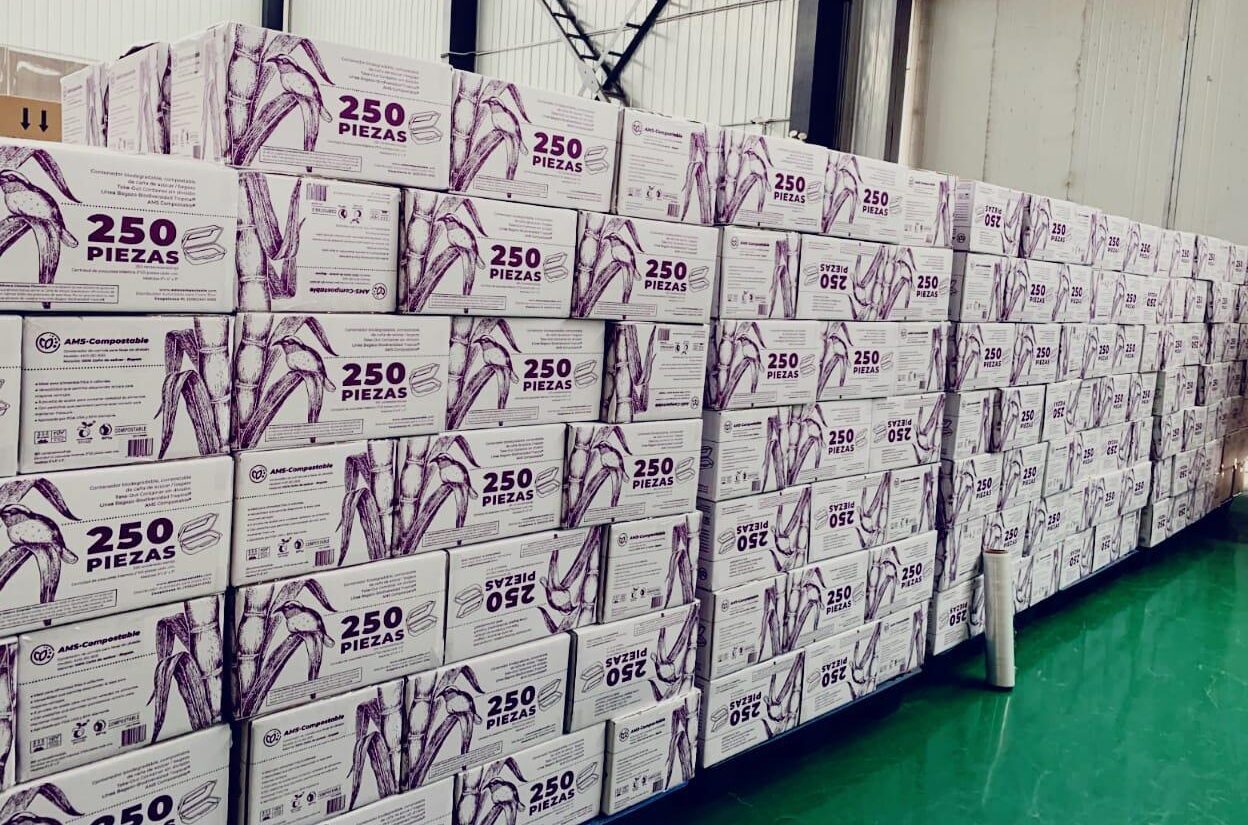
Can we use plastic and save the world from pollution?
AMS COMPOSTABLE interviewed with an expert in plastics and compostability
Members of the AMS Compostable team looked for the right person who could tell those who are not scientists or experts in the field, what compostable plastic is and how it differs from other types of plastic. In the end, we were surprised with the reality of the plastics industry, and discovered that not everything that is advertised as eco-friendly, really is. At his office, the Master of Science and Materials Engineer, Christian Cardenas J., responded to the concerns we had and offered us a simple look at the world of compostable plastic.
Mr. Cardenas, when we buy paper or plastic products, many of them include designs or words that imply are friendly to the environment. We identified several terms: Biodegradable, compostable, degradable and recyclable. Most people think that everything is the same, what are the differences?
Engineer Cardenas: I like that this is the first question because it is best to clarify how different those terms are, rather than to talk about each of them in depth. There are big differences between a degradable, biodegradable, compostable, and recyclable material. Since we are going to talk about plastic, I will answer regarding this material.
Degradable is any material, but the time for it varies. For example, a regular plastic can take up to 150 years to degrade, while compostable, about 90 days. Also, it should be noted that there are plastics that degrade to become a kind of “plastic powder”, but never completely disappear. These are the most harmful.
A plastic is biodegradable when it can decompose as it normally occurs in nature without producing toxic substances. Regarding the technical and legal aspects, for a material to be considered biodegradable, it must first comply with different standards depending on each territory. I do not know all the certification bodies in the world, but I know that you, AMS Compostable, have European and American certifications, which avoids the need to make-up your quality and production processes.
In the case of compostable plastic our action is required for the composting process, rushing the time of degradation. The time to decompose under composting processes is between ninety days and six months. In USA is very important to meet the standards of BPI and ASTM D6400 and D6868, which guarantee that the plastic will degrade naturally without generating toxics, and at a speed comparable to that of compostable materials.
“All compostable plastics are biodegradable, but not all biodegradable plastics are compostable“
Finally, the term recyclable refers to the fact that a product is reusable, even more than once.
As you can see, it is not that difficult, and once we understand the differences we can improve the criteria for choosing our plastic products.
“whichever way you look at it, the use of compostable bags offers great benefits for the environment. Whether you want to do the composting process or discard the bags in industrial facilities, the degradation of this plastic will not last more than six months, and will be done completely, without leaving a trace “
Will a compostable plastic bag will tear apart easily?
Engineer Cardenas: a compostable plastic bag has the same technical properties as any conventional plastic bag; density, melting point, tensile strength, elongation at break and so on. So, no, it would not tear apart easily. The exclusive advantage for a bag like those of AMS Compostable is that we can make composting at home using other waste for that purpose (kitchen waste and garden debris).
We know you are an expert in how compostable bags are made, but, outside of the obvious impact on the environment, what other benefits do they offer us that we do not know at first sight?
For some time now, conventional and digital media keep us informed about the serious impact of plastics on the environment. We know of the insane marine plastic pollution, and the plastic waste accumulation in local and municipal deposits. As of 2015, more than 6.9 billion tons of plastic waste had been generated. Around 9 percent of that was recycled, 12 percent was incinerated, and 79 percent accumulated in landfills or environment. By composting a bag, we are transforming what otherwise would be waste into living soil that we could use to promote food security and landscape health. We could even pack and export compost to countries in which land fertility is very low. With a different thinking and different actions, the benefit offered by compostable bags are very favorable to our times.
What do you think that can encourage people to use compostable bags?
New generations are already paving the way; In 2015, Nielson published its annual Global Corporate Sustainability Report, indicating that, globally, 73% of surveyed millennials are willing to spend more on a product if it comes from a sustainable brand. That is huge and gives us real hope. For older generations, basically, continue generating awareness and consciousness about the serious damage of non-biodegradable and non-compostable plastic to the planet and our lives so we can become better consumers. Conventional plastic brings problems that we do not even understand! Many people think this is long term issue and that future generations will need to deal with it, but this is far from true. This is a problem that is affecting us right now. It was recently reports that the amount of waste that we generate has saturated the environment to such an extent that some scientists argue that finally, we have reached the point of eating our own garbage. Professor Philipp Schwabl, of the Medical University of Vienna, recently confirmed the presence of plastic microparticles in the feces of citizens of Finland, Italy, Japan, Holland, Poland, Russia, the United Kingdom and Austria, that is people who live in very different corners of the world…! That is certainly not the world where I want to live, do you?
About our certifications

AMS Compostable has more than six international certifications, which leads successfully to the production of 100% compostable plastic bags, voiding toxic waste into the environment.
We encourage you to join us and become a protagonist of a new green world!




